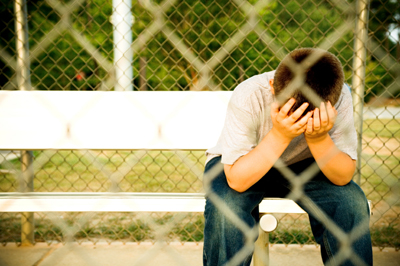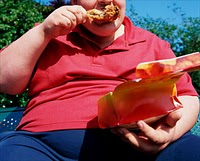When I was a kid my parents were always trying to get me to join different organizations: The Jewish Community Center off of Shirley Ave. in Revere, Camp Menorah, etc. I rebelled against all of it. Now here Erin and I are, pushing Sean and Duncan into the Cub Scouts.
Mood music:
[youtube=http://www.youtube.com/watch?v=zt7exeJblR0&fs=1&hl=en_US]
My parents were right to push these things on me. I was in the fourth grade and they had just gotten divorced. It was a bitter, hate-filled, fight-infested divorce. They just wanted there to be someplace we could go to take our minds off the pain and focus on something positive.
The counselors at these places tried their best to make it happen. But I was a punk and treated them all with contempt. I especially hated Camp Menorah (my much younger sister, Shira, loved it there and was a counselor when she got older.). I didn’t get along with anyone and I felt they were robbing me of the freedom to roam the streets of the Point of Pines. The home neighborhood was safe enough and was surrounded by the ocean. I just wanted to hide in the tall grass behind Gibson Park.
Looking back, I feel bad for being such a rotten kid to these people.
Fast forward 30 years. Sean and Duncan are now old enough for the Cub Scouts, and we pretty much made them join. The dynamic is much different. We’re not trying to keep them from home to shield them from pain. We just see it as a great character-building opportunity. Besides, a lot of their friends are Cub Scouts.
Their grandfather paid for their uniforms (Thanks, Dad) and off they went. Duncan is loving it. I think Sean is, too, but he’s trying hard not to admit it.
Last night I took Sean to his den meeting and just sat there taking it all in.
The den leader, Mr. Connor, does a great job with them. He’s patient but doesn’t take any crap. To my amusement, the kids sent a lot of crap his way. The focus last night was on why we have laws. Asked what happens when we break a law, one kid shouted, “We get sent to Juvie!”
Each kid drew a poster that symbolized people obeying the laws. Sean drew a guy paying his taxes. The taxpayer tosses money at the monster-like tax collector, who is covered in dollar bills. The taxpayer also had a gun in one hand. Sean said he just wanted to do something funny. I clearly have my parental work cut out for me. 
I bring this up because it’s funny to me that we are doing this stuff with our children, because I was never that type of guy. I do give most of the credit to Erin, who pushed the scouts more vigorously than I did. I don’t call her my better half for nothing.
As a kid, my father pushed such activities more than my mother did. He was all about us building up a work ethic and a sense of responsibility. He didn’t succeed with me back then. But it would appear he did succeed in the end. It just took an extra 30 years for me to get it.
Now the lesson is used to mold our children into better people than we used to be.
Since all parents strive to raise children that are better than they were and have more than they did, I’m chalking this up as a win.

 This book gets into the train wreck that was the DeFeo family. They were outwardly religious and close-knit. But the father was a rage-a-holic who apparently yelled a lot and beat his wife and kids, especially his oldest son Butch, who is now rotting in jail for the murders.
This book gets into the train wreck that was the DeFeo family. They were outwardly religious and close-knit. But the father was a rage-a-holic who apparently yelled a lot and beat his wife and kids, especially his oldest son Butch, who is now rotting in jail for the murders. It’s the whole cause-and-effect thing that keeps my obsession going.
It’s the whole cause-and-effect thing that keeps my obsession going.


